Coronavirus: Search for close contacts of first UK cases
Officials say they are tracing those who spent time with two people tested positive for the new virus. …
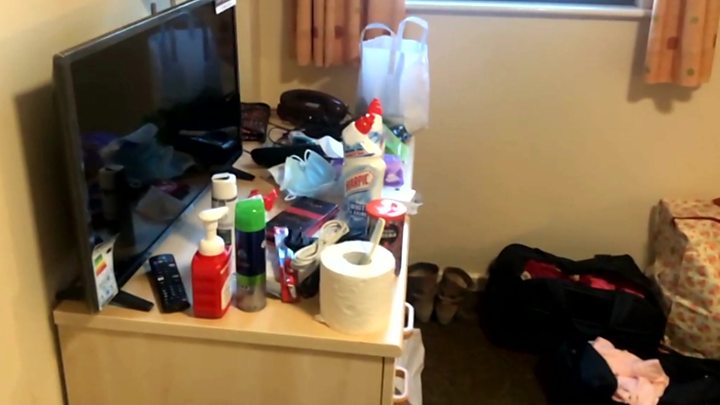
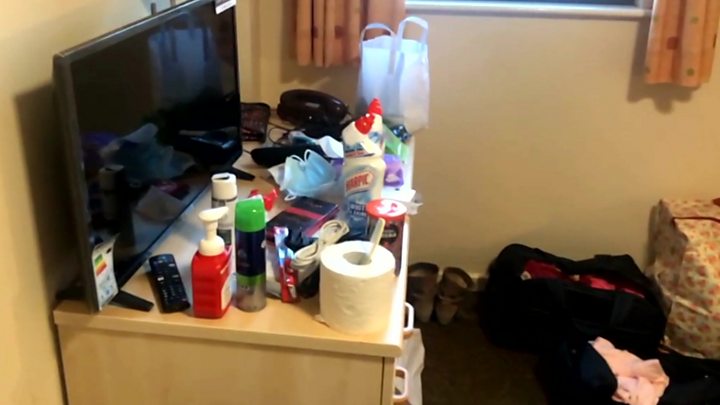
Media playback is unsupported on your device
Officials are trying to trace people who had close contact with two Chinese nationals diagnosed with the new strain of coronavirus in the UK.
Public Health England (PHE) said anyone who had close contact – defined as being within two metres of those infected for 15 minutes or more – will receive health advice.
The pair – who are related – were taken ill while staying at a hotel in York.
It comes as Britons evacuated from China begin two weeks in quarantine.
The Foreign Office also announced some non-essential embassy staff and their families are being withdrawn from mainland China. A statement said those needed to continue “critical work” will remain.
The FCO has warned that, going forward, its ability to provide help to Britons from within China may be “limited”.
The new coronavirus has caused the deaths of 259 people so far – all in China.
Cases of the virus have reached nearly 12,000 in the country – with more than 100 cases reported in 22 other countries.
Some 83 UK nationals and 27 others were flown into the UK on a chartered evacuation flight from the Chinese city of Wuhan, where the outbreak of coronavirus began.
Before boarding the flight, passengers had to sign papers agreeing to an enforced period of isolation.
The UK nationals were taken by coach to Arrowe Park Hospital on the Wirral and arrived on Friday evening at about 19:00 GMT.
They will spend 14 days in quarantine – but not solitary confinement – in two apartment blocks normally used to house nurses, who have been moved to local hotels.
The UK evacuees are being put up in fully-furnished rooms, including kitchens, and provided with food and laundry facilities. Families are being kept together, with toys and baby equipment available.
All 83 will have access to a team of medical staff who will closely monitor their condition.
“They’ll be looking for the development of any types of symptoms that could be associated with the coronavirus,” said Jonathan Ball, professor of virology at Nottingham University.
“So that would be anyone developing a temperature or anybody feeling just generally unwell.”
Matt Raw, one of those in quarantine, told BBC News that he and his family “were extremely glad to be here”.
He said he, his wife and his mother were staying in a four-bedroom apartment, along with another woman and her daughter. He stressed they were feeling fine and had “an army of people looking after them”.
Mr Raw said there was a contained area outside where they were able to get some fresh air, adding they were “allowed contact with anybody within the facility, as long as we’re wearing face masks”.
The hospital continues to work “as normal” with both A&E and outpatients departments open to the public, reporter Sam Fenwick told BBC Breakfast.
She said staff at the hospital were keen to point out that people working in the hospital would not come into contact with those in quarantine, and there was “no risk to public health to people here on the Wirral”.
‘Military-grade cleansing process’
The coach company which transported the evacuees to the Wirral said health officials advised its drivers did not need to wear protective clothing for the journey.
Horseman Coaches said five drivers will nonetheless enter a two-week period of isolation at home as a precaution.
The vehicles used will also be subject to a “military-grade cleansing process”, the company added.
Efforts to trace those who may have had close contact with the two Chinese nationals who tested positive for the virus in Britain are continuing.
The pair – whose diagnosis was announced on Friday morning – were staying at the Staycity apartment-hotel in York when medics were called.
After initially being taken to Castle Hill Hospital in Hull, they are now being treated at a specialist infectious diseases unit in Newcastle.
Professor Sharon Peacock, director of the National Infection Service at PHE, said: “Public Health England is contacting people who had close contact with the confirmed cases.
“Close contacts will be given health advice about symptoms and emergency contact details to use if they become unwell in the 14 days after contact with the confirmed cases.”
Prof Peacock previously said while staff were working to trace people who have been in contact with the pair, they do not currently have “any idea” of how high that number might be.
Staycity said that – after consultation with PHE – its York hotel would stay open and the apartment used by the two patients disinfected.
Who qualifies as a close contact?
Anyone who is within two metres of the infected person for 15 minutes.
Would the virus survive on a tissue?
Probably for 15 minutes, but it is unlikely to survive on surfaces, like door handles, for more than 24 hours.
Source: Public Health England
On Thursday, the UK’s four chief medical officers raised the risk level of the illness from low to moderate and the World Health Organisation (WHO) declared an international public health emergency.
The United States declared a public health emergency on Friday night, with President Donald Trump signing an order which will temporarily bar entry for most foreign nationals who have travelled in China within the last 14 days.
On Saturday, Australia said it too would refuse entry to all non-citizens arriving from China.
Ministers said the government is prepared to send another plane to Wuhan to rescue British citizens if needed.
‘Relatively minor disease’
Prof Whitty said the specialist unit at the Newcastle hospital was experienced in treating people with infectious diseases and there was “a high chance people would get better”, based on current information.
“A lot of people will end up with a relatively minor disease,” he said.
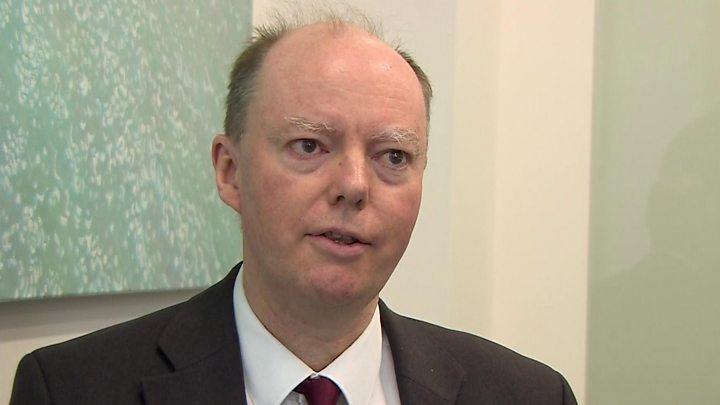
Media playback is unsupported on your device
Ian Jones, professor of virology at the University of Reading, said the possibility of further spread was “minimal” because the cases were caught early.
Virus experts said they were not surprised to see cases in the UK but there was no reason to panic.
On Friday, it emerged that the number of new coronavirus cases worldwide had overtaken that of the Sars epidemic.
However, the mortality rate is currently low, at 2% – less than Sars, at 10% and Ebola, at 70%, WHO’s chief medical officer says.
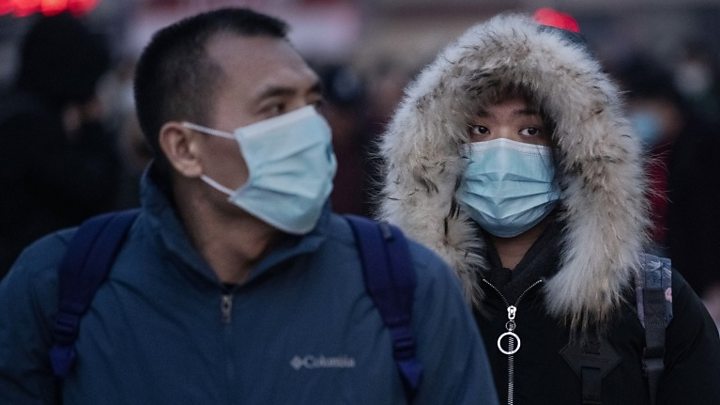
Media playback is unsupported on your device
The death rate could yet go up if more of those in hospital die – or down, if it’s discovered there are many other people with mild symptoms.
Learn more about the new virus
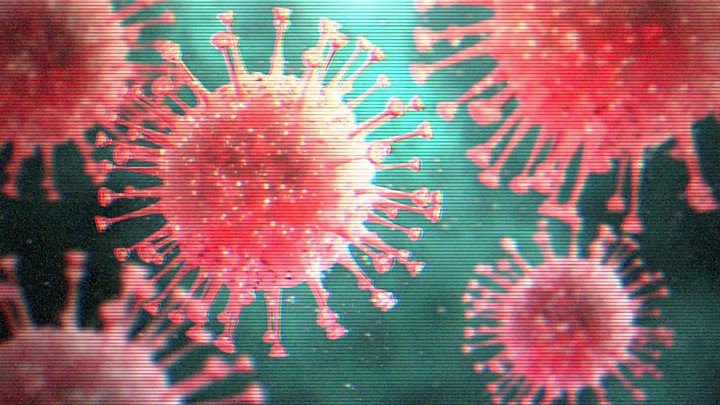
Media playback is unsupported on your device
Do you have information to share? Please get in touch by emailing haveyoursay@bbc.co.uk.
Please include a contact number if you are willing to speak to a BBC journalist. You can also contact us in the following ways:

